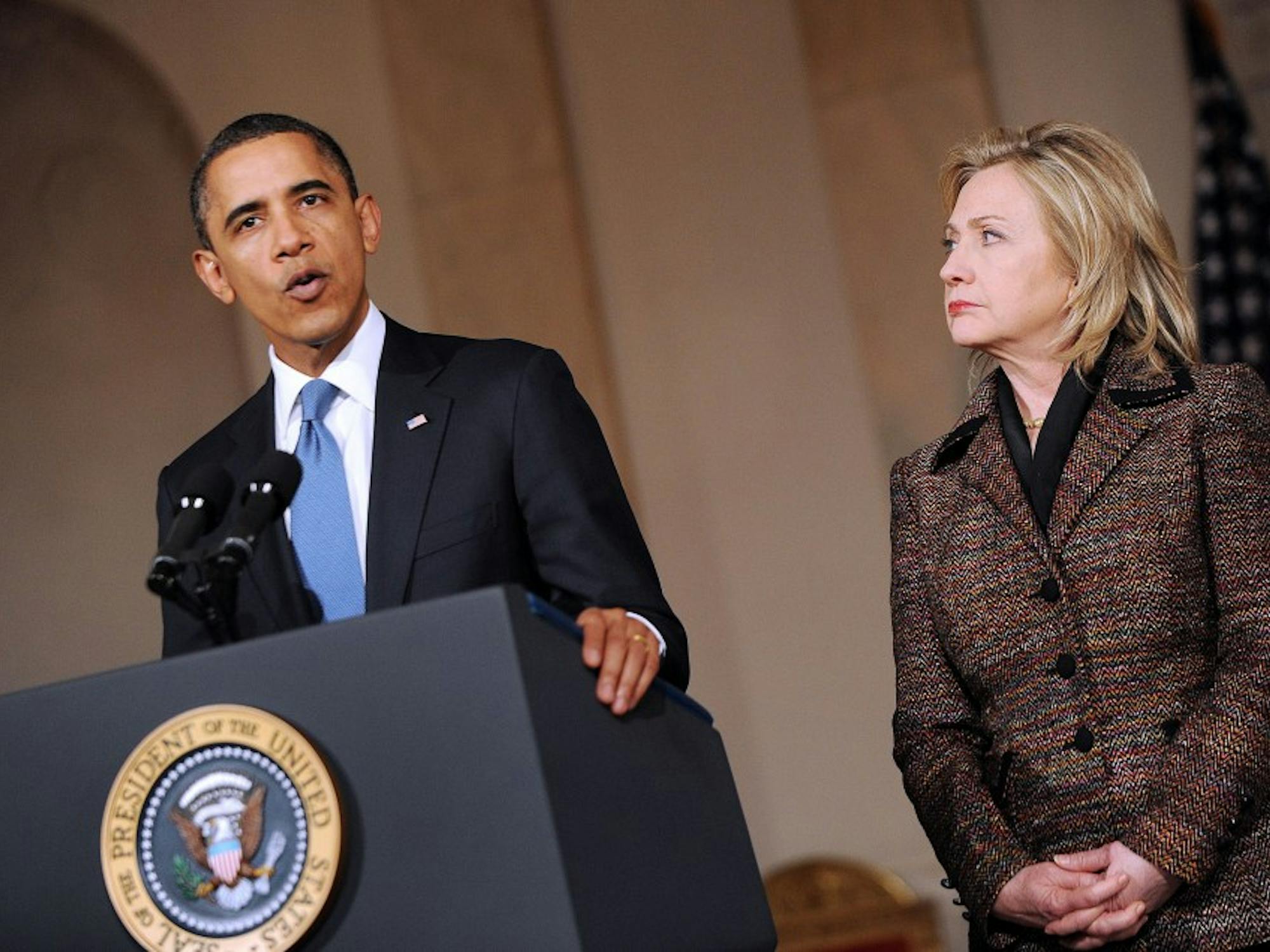As popular protests in Libya against the 41-year-regime of dictator Muammar Gaddafi transform into an open insurrection for his forcible overthrow, the world’s imperialist powers have converged on the country like a pack of wolves readying for an attack.
At the center of the drive for military intervention is the United States; however, other powers including Britain, Canada, Germany, France, the Netherlands and China have military resources on the scene.
As part of what has been code-named Operation Odyssey Dawn, the U.S. has deployed two amphibious warships, the USS Kearsarge and the USS Ponce, the destroyer USS Barry and the aircraft carrier USS Enterprise to the Mediterranean. In addition, 400 marines have been flown to Crete in preparation for an intervention. The operation has been dressed in the familiar garb of humanitarian assistance with the U.S. military once again engaged in what we are led to believe is its primary occupation—the liberation of oppressed peoples.
One should question the “concern” of the Obama administration for the Libyan people given similar atrocities have been committed by governments, which happen to be U.S. allies, in Tunisia, Egypt, Oman and Bahrain, which did not elicit military threats. Significantly, there was no “concern” expressed for the scores of Iraqis killed and injured by that country’s U.S.-puppet government during protests last month against the devastating conditions brought by the U.S. intervention and continued occupation.
Moreover, the timing of Obama’s “concern” can only be seen as the result of cold calculation. Similar to its abrupt abandonment of Egyptian dictator Hosni Mubarak, Washington had waited to withdraw support for its friend and ally – once labeled the “mad dog of the Middle East” by President Ronald Reagan – until Gaddafi demonstrated his inability to smash the uprising.
Justification for military intervention in Libya is largely being based on reports Gaddafi carried out aerial bombings against civilians. But, according to Adm. Mike Mullen at a congressional hearing, these have yet to be confirmed, and their extent is limited at best given reports of defections by Libyan pilots.
In reality, the build-up toward intervention is being driven by geo-strategic considerations. For decades, imperialist interests in the region have been secured through the propping up of repressive dictatorships. This modus operandi is quickly disintegrating in the face of the burgeoning mass upsurges in the region.
Therefore, a base of operations is desired for securing interests through further intervention in the region.
“The entire region is changing and a strong and strategic American response will be essential,” Secretary of State Hillary Clinton declared in testimony before Congress.
There is also the obvious concern over continued access to Libya’s vast oil reserves – the largest in Africa. Transforming the country into a client state will accomplish this.
The U.S. government is currently maneuvering behind the scenes to ensure any military intervention is seen as an international effort. However, it will not shrink from assembling a “coalition of the willing” as it did for its invasion of Iraq if international bodies such as the United Nations fail to provide its blessing.
Regardless of the secondary particulars of a military intervention, such a campaign will not be in the interest of the Libyan people who are engaged in a struggle for their future. The overthrow and prosecution of the corrupt and barbaric regime of Muammar Gaddafi is the task of the Libyan masses themselves, not the imperialist and former colonial powers that aided and abetted the dictator for decades in his crimes.









